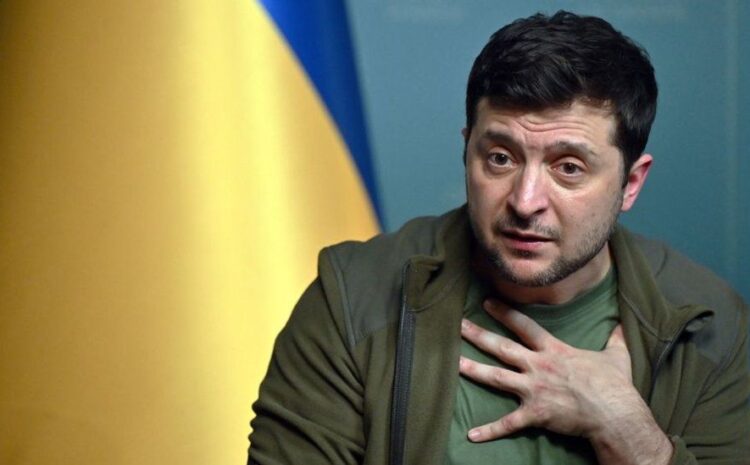
IMAGE SOURCE, GETTY IMAGES
In a fiery speech, Volodymyr Zelensky said the West’s reluctance to intervene had given Russia “a green light” to continue bombarding towns and villages.
Nato has argued that a no-fly zone will result in confrontation with Moscow.
And Russia’s President, Vladimir Putin, said on Saturday that any such move would be seen “as participation in an armed conflict by that country”.
Referring to sanctions imposed on Russia by the West, the Russian leader said they were “akin to a declaration of war, but thank God it has not come to that”.
In his speech from Kyiv, Mr Zelensky said he disagreed that direct action could “provoke Russia’s direct aggression against Nato”.
“All the people who will die starting from this day will also die because of you. Because of your weakness, because of your disunity,” a furious Mr Zelensky added.
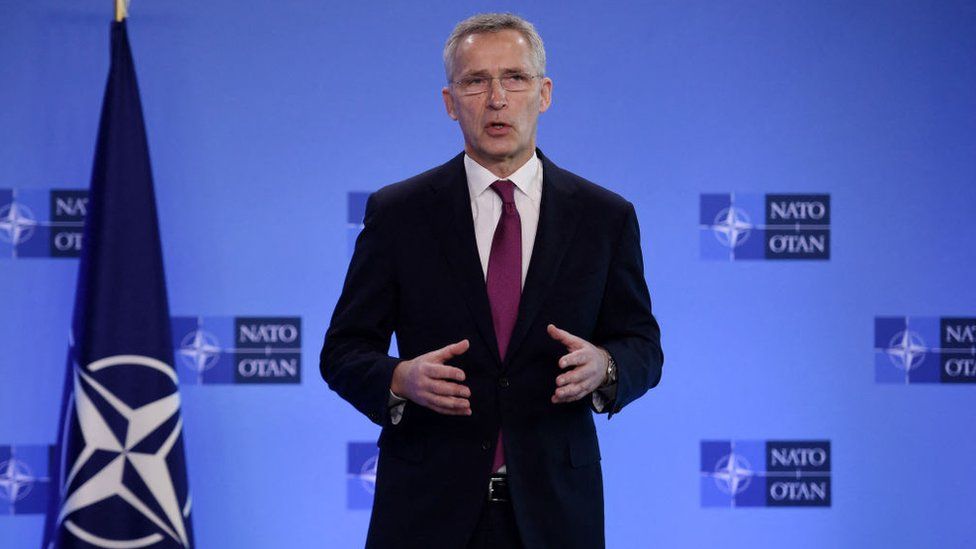 IMAGE SOURCE, GETTY IMAGES
IMAGE SOURCE, GETTY IMAGESUS Secretary of State Antony Blinken also ruled out the introduction of a no-fly zone, but told the BBC he was convinced Ukraine could win its war with Russia.
“I can’t tell you how long this will go on,” America’s top diplomat said. “I can’t tell you how long it will take. But the idea that Russia can subjugate to its will 45 million people who are ardently fighting for their future and their freedom, that does not involve Russia having its thumb on Ukraine, that tells you a lot.”
As Russia’s invasion of Ukraine enters its 10th day, Moscow’s forces continue to heavily shell many cities.
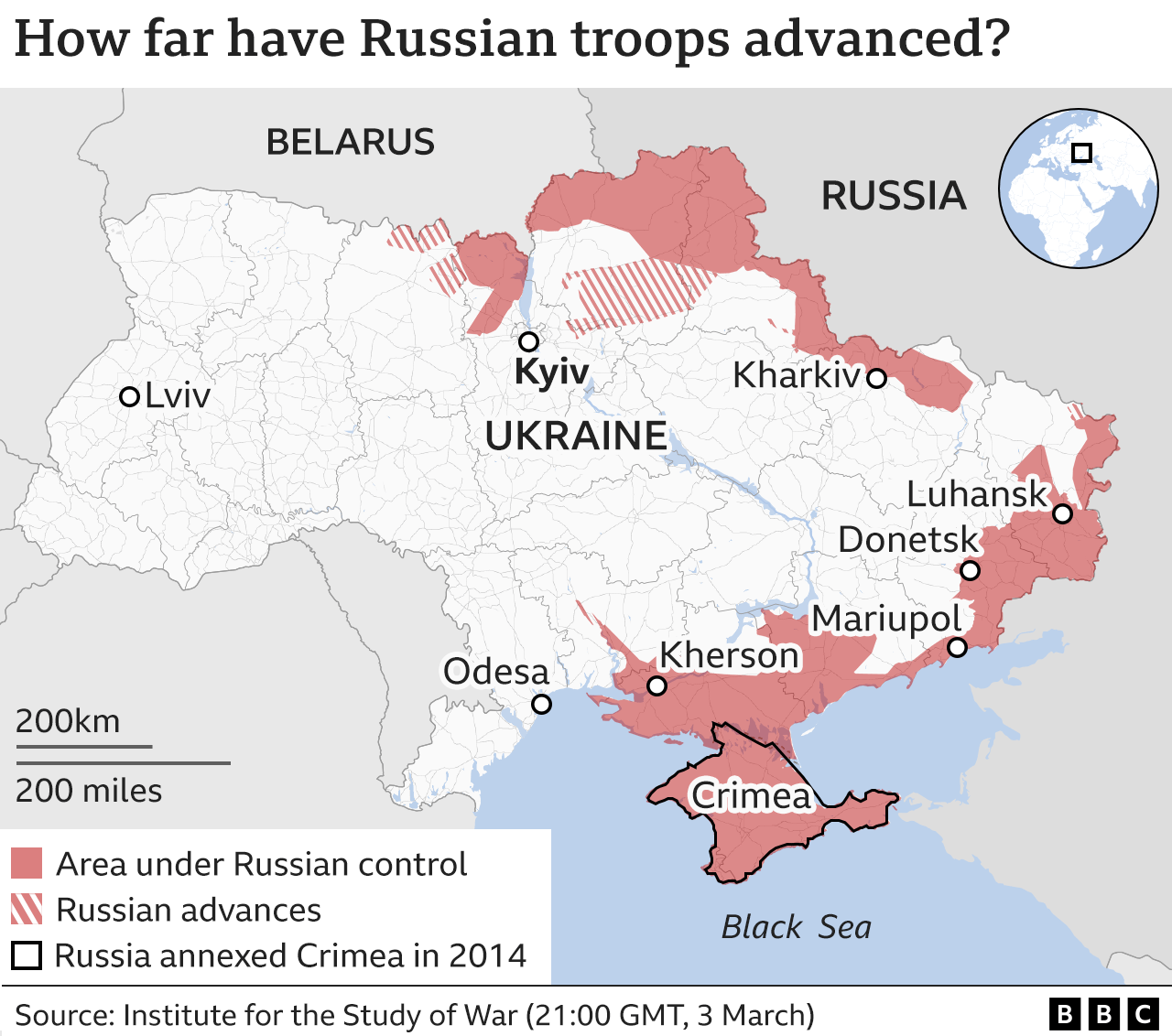
Vadim Boychenko wrote on the Telegram messaging app that the city was “simply being destroyed” and said officials were prioritising “the establishment of a ceasefire so that we can restore vital infrastructure and set up a humanitarian corridor to bring food and medicine into the city”.
In Kyiv, a massive convoy stretching out over 40 miles (64km) remains stalled outside the city, but the Ukrainian capital has come under renewed assault, with explosions caused by intense shelling audible in the city centre.
There have also been unconfirmed reports of fresh fighting on Saturday in the north-eastern city of Sumy and of rocket attacks on the train station in Ukraine’s second city, Kharkiv, above a metro station where city residents are sheltering from shelling, and in the northern city of Chernihiv.
And the US ambassador to the UN, Linda Thomas-Greenfield, has warned that Russian troops have advanced within 20 miles (32km) of Ukraine’s second biggest nuclear facility.
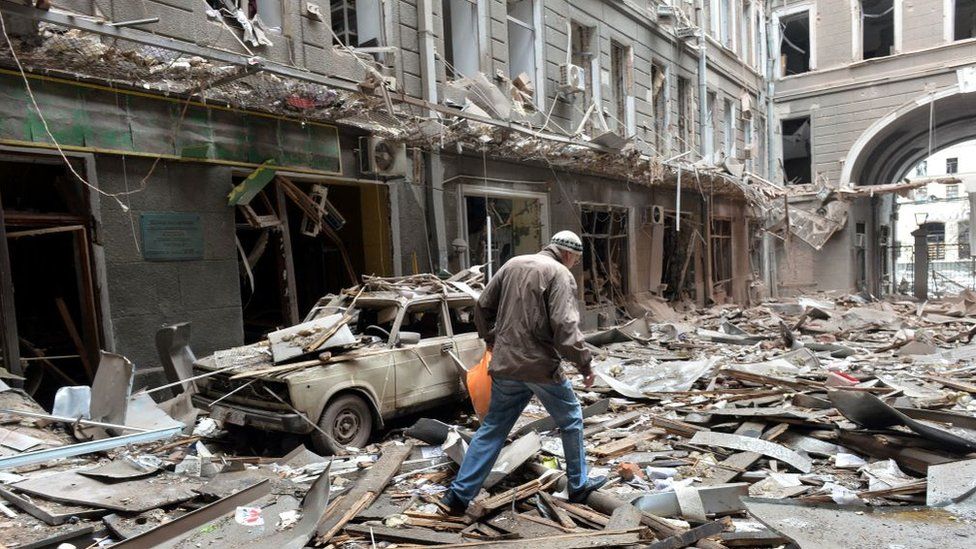 IMAGE SOURCE, GETTY IMAGES
IMAGE SOURCE, GETTY IMAGESHer comments follow Friday’s attack on the Zaporizhzhia nuclear power plant, which she said reflected a “dangerous new escalation” in Russia’s invasion. Moscow’s ambassador, Vasily Nebenzya, dismissed reports that Russian troops attacked the plant as “lies” and “disinformation”.
Tim Davie, the BBC’s director-general, said the legislation “appears to criminalise the process of independent journalism” in Russia, while the Washington Post said it would remove bylines from pieces written by its reporters in Russia.
It comes as Sky News released dramatic footage of their correspondent Stuart Ramsey coming under fire outside Kyiv.
Meanwhile, Mr Zelensky addressed massive rallies in support of Ukraine in several cities across Europe, including the Czech capital, Prague, and the Georgian capital, Tbilisi.
He warned demonstrators: “If Ukraine does not survive, the whole of Europe will not survive.”
But in the Serbian capital of Belgrade, some 4,000 people have taken part in a pro-Russian rally that marched from a monument of Russian Tsar Nicholas II to the Russian embassy.
Demonstrators sang the Serbian and Russian national anthems and carried Russian flags and pictures of President Vladimir Putin.
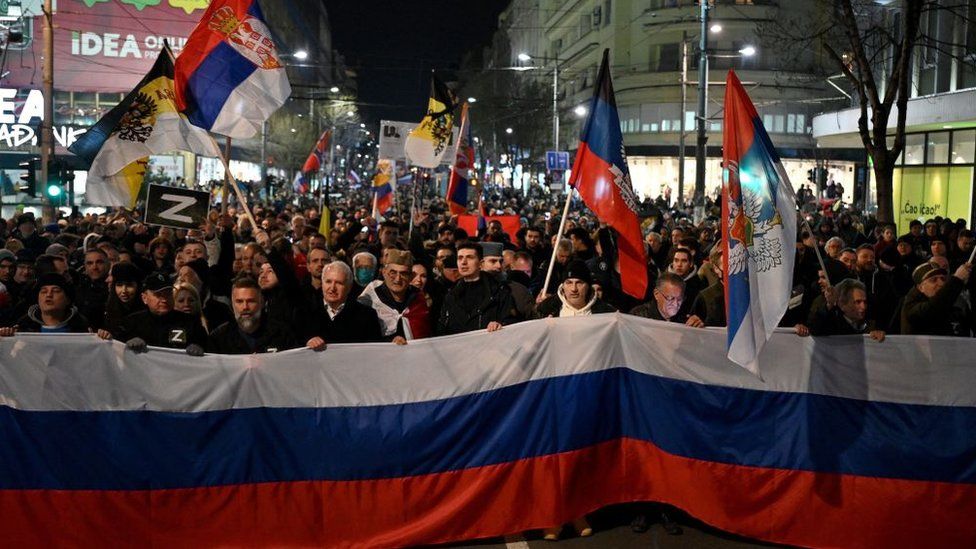 IMAGE SOURCE, GETTY IMAGES
IMAGE SOURCE, GETTY IMAGESElsewhere, in a sign that Western sanctions are starting to have a tangible impact, Italian police have seized the yachts of two of Russia’s wealthiest oligarchs.
Officers seized a 213-ft (65-m) yacht worth $27m (£20m) owned by Alexey Mordashov, a close ally of President Vladimir Putin and Russia’s richest man, in the northern port of Imperia, officials told local media.
Another yacht, owned by Gennady Timchenko, another oligarch with close ties to Putin, has been impounded in Imperia, officials said.
Mordashov is worth an estimated $29bn and built his wealth around the Russian steel producer Severstal, while Timchenko is said to hold around $17bn of assets and made his fortune in oil trading.
